Why do some people look older?
Dive into 'Why do some people look older?' as we unveil the scientific and lifestyle factors affecting appearance. Discover more about the aging process now.
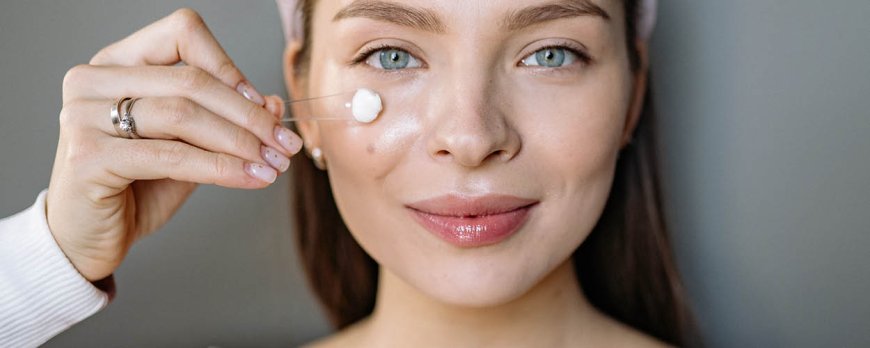
Why do some people look older?
Have you ever wondered why certain individuals seem to age faster than others? The appearance of aging is influenced by various factors, including genetics, environmental factors, lifestyle choices, and the condition of our skin. Understanding these factors can help shed light on why some people may appear older than their actual age.
Key Takeaways:
- Genetics, specifically the MC1R gene, can influence how old a person appears.
- Environmental factors, such as sun exposure and pollution, can accelerate the aging process.
- Lifestyle choices, including diet, exercise, and stress levels, can impact how we age.
- The condition of our skin plays a pivotal role in our perceived age.
- There are various anti-aging solutions available, from skincare products to cosmetic procedures.
Genetics and Aging
Our genetic makeup can significantly impact how we age and how old we appear. Scientists have found that a person's perceived age, or how old they appear to be, can be influenced by different versions of a specific gene called MC1R. This gene is responsible for inflammation and repairing damaged DNA.
The study, conducted on 2,600 older Dutch people, found that those with certain forms of the MC1R gene looked two years older than their actual age. This effect remained even after accounting for other factors such as skin pigment and wrinkles. The gene is believed to contribute to aging by impeding DNA repair processes and increasing inflammation.
It is likely that there are other genes that also play a role in how old a person looks. Further research is needed to better understand the genetic pathways involved in the appearance of aging.
Environmental Factors and Aging
The environment in which we live plays a crucial role in the aging process. Our skin, the largest organ of our body, is exposed daily to various environmental factors that can accelerate the signs of aging. Understanding these influences can help us take proactive steps in preserving our youthful appearance. Here are some key environmental factors that contribute to premature aging:
- Sun exposure: Prolonged exposure to the sun's ultraviolet (UV) rays can lead to skin damage, such as wrinkles, sunspots, and loss of elasticity. Protecting our skin from harmful UV radiation through sunscreen, hats, and seeking shade can help minimize these effects.
- Pollution: Air pollution, including smog and toxins, can contribute to skin aging by causing oxidative stress and inflammation. Keeping our skin clean and well-hydrated can help mitigate the impact of pollution on our skin.
- Lifestyle choices: Unhealthy habits, such as smoking and excessive alcohol consumption, can accelerate the aging process. These habits can lead to collagen breakdown, dehydrated skin, and a dull complexion. Opting for a healthy lifestyle that includes a balanced diet, regular exercise, and adequate hydration can help slow down the visible signs of aging.
While we cannot completely avoid all environmental factors that contribute to aging, we can take steps to minimize their impact. Protecting our skin from the sun, reducing exposure to pollution, and adopting healthy lifestyle choices are crucial in maintaining a youthful appearance. Taking these proactive measures will not only enhance our physical appearance but also contribute to overall well-being as we age.
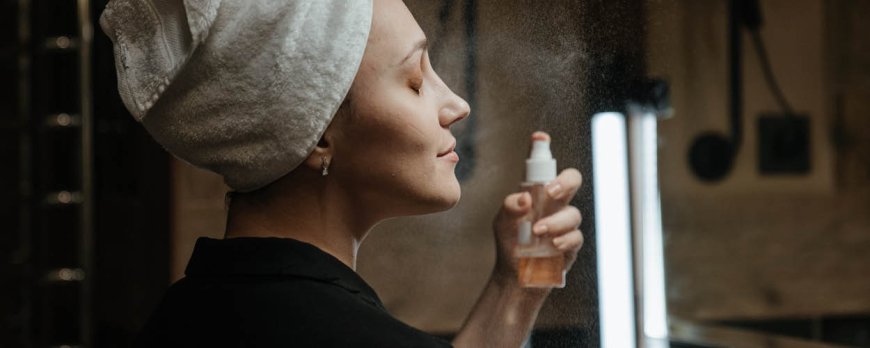
Lifestyle and Aging
The way we live our lives can significantly affect the way we age. Our lifestyle choices, including diet, exercise, and stress levels, play a crucial role in how old we appear. Here are some key factors to consider when it comes to lifestyle and aging:
- Diet: Consuming a well-balanced diet rich in fruits, vegetables, whole grains, and lean proteins can provide the necessary nutrients to support healthy aging. Antioxidant-rich foods, such as berries and leafy greens, may help protect against cellular damage caused by free radicals.
- Exercise: Regular physical activity has been shown to have numerous benefits for aging. Engaging in activities such as strength training, cardiovascular exercise, and flexibility exercises can help maintain muscle mass, improve cardiovascular health, and promote overall well-being.
- Stress Management: Chronic stress can accelerate the aging process. Finding effective strategies to manage stress, such as through meditation, deep breathing exercises, or engaging in hobbies, can have a positive impact on both physical and mental health.
- Quality Sleep: Getting adequate sleep is essential for healthy aging. Poor sleep quality or insufficient sleep can contribute to the development of wrinkles, fine lines, and dark circles under the eyes. Establishing a regular sleep routine and creating a comfortable sleep environment can promote restful sleep.
By making mindful choices in our daily lives, we can positively influence how we age and maintain a youthful appearance. It is important to note that lifestyle factors alone do not solely determine our perceived age, as genetics and other external factors also contribute to the aging process. However, adopting a healthy lifestyle can enhance overall well-being and support healthy aging.
Skin Aging
As we age, our skin undergoes various changes that contribute to our overall appearance. These changes may include a loss of elasticity, the formation of wrinkles, and changes in skin tone and texture. Understanding the process of skin aging is important in order to effectively address these concerns and maintain a youthful appearance.
One of the key factors in skin aging is the breakdown of collagen and elastin, proteins that provide structure and elasticity to the skin. As we get older, the production of these proteins slows down, leading to sagging and the formation of fine lines and wrinkles. Additionally, the skin's ability to retain moisture decreases, resulting in dryness and dullness.
Exposure to environmental factors such as ultraviolet (UV) radiation from the sun can also accelerate skin aging. UV rays can damage the collagen and elastin fibers in the skin, leading to the development of age spots, uneven skin tone, and a rough texture. It is essential to protect the skin from UV damage by using sunscreen, wearing protective clothing, and seeking shade.
Furthermore, lifestyle choices can significantly impact the aging process of the skin. Factors such as smoking, poor nutrition, inadequate hydration, and high levels of stress can contribute to premature aging. Adopting a healthy lifestyle that includes a balanced diet, regular exercise, proper hydration, and stress management can help slow down the aging process and maintain a more youthful appearance.
Ways to Maintain Healthy and Youthful-Looking Skin:
- Use a gentle cleanser and moisturizer daily to keep the skin hydrated and nourished.
- Apply sunscreen with a high SPF to protect the skin from harmful UV rays.
- Incorporate antioxidant-rich foods into your diet, such as fruits and vegetables, to help combat free radicals that contribute to skin aging.
- Stay hydrated by drinking an adequate amount of water throughout the day.
- Avoid smoking and limit alcohol consumption, as they can accelerate the aging process.
- Manage stress through techniques such as meditation, yoga, or engaging in hobbies that promote relaxation.
- Consider using skincare products that contain ingredients like retinol, hyaluronic acid, and vitamin C, which can help improve the appearance of aging skin.
By understanding the process of skin aging and implementing these healthy skincare practices, you can help maintain the youthful appearance of your skin for longer and age gracefully.
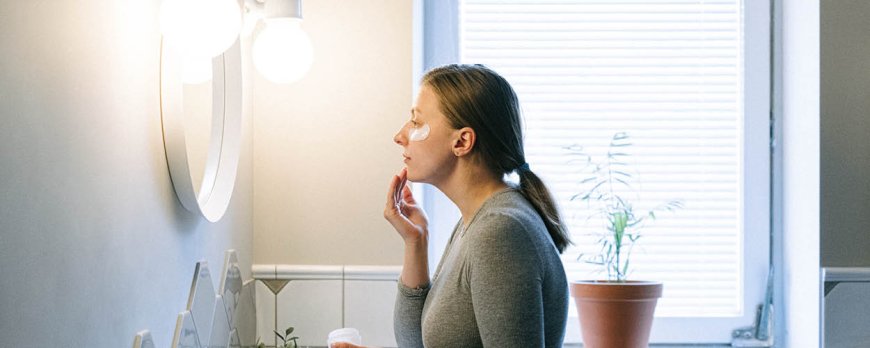
Anti-Aging Solutions
If you're looking to defy the signs of aging, there's a wide range of solutions to consider. From skincare products to cosmetic procedures, these options can help you maintain a youthful appearance and boost your self-confidence. Here are some effective anti-aging solutions to explore:
1. Skincare Regimen
A well-rounded skincare regimen is essential for combating the signs of aging. Look for products containing ingredients like retinol, hyaluronic acid, and antioxidants, which can help reduce wrinkles, improve skin texture, and enhance hydration. Don't forget to protect your skin from the sun with a broad-spectrum sunscreen.
2. Healthy Lifestyle Choices
- Follow a balanced diet rich in fruits, vegetables, whole grains, and lean proteins to nourish your skin from within.
- Engage in regular exercise, which helps improve blood circulation and contributes to a youthful glow.
- Manage stress levels through activities like meditation, yoga, or hobbies that bring you joy and relaxation.
3. Cosmetic Procedures
If you're looking for more dramatic results, consider cosmetic procedures such as Botox, dermal fillers, chemical peels, or laser resurfacing. These treatments can help reduce wrinkles, tighten sagging skin, and improve overall skin tone and texture. Consult with a qualified professional to determine which procedure is best suited to your needs.
Remember, it's essential to adopt a holistic approach to anti-aging. While these solutions can be beneficial, maintaining overall well-being and embracing a positive mindset are equally important in keeping your appearance youthful and vibrant.
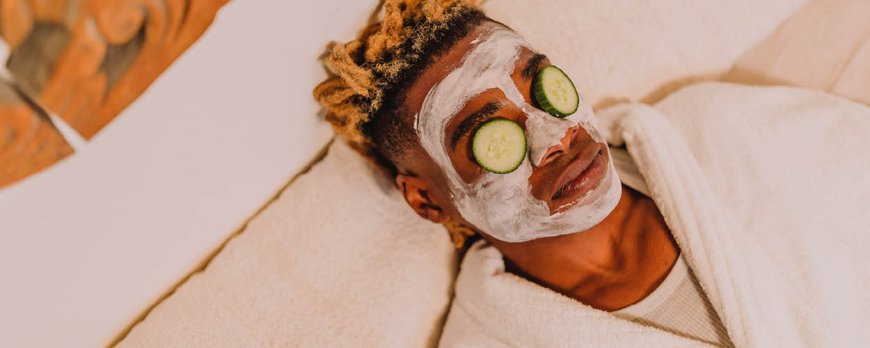
The Aging Process
Aging is an inevitable process that affects all individuals differently. As we age, our bodies undergo a series of biological changes that can result in visible signs of aging. One factor that has been extensively studied is the role of genetics in the aging process. Scientists have discovered that variations of the MC1R gene, responsible for inflammation and DNA repair, can influence how old a person appears. In a study conducted on 2,600 older Dutch individuals, certain forms of the MC1R gene were found to make individuals look two years older than their actual age.
These findings suggest that impaired DNA repair processes and increased inflammation, influenced by the MC1R gene, may contribute to the appearance of aging. However, it is important to note that genetics is just one piece of the puzzle. Other factors, such as environmental influences and lifestyle choices, can also play a significant role in how we age.
While the genetic pathways involved in the appearance of aging are still being explored, it is clear that adopting a holistic approach is crucial in maintaining a youthful appearance. This includes taking care of our skin, protecting it from harmful environmental factors, and practicing a healthy lifestyle. By understanding the complex interplay between genetics, environment, and lifestyle, we can make informed choices that may help slow down the visible signs of aging.
Further research is needed to uncover additional genes and biological processes that contribute to the appearance of aging. By deepening our understanding of the aging process, scientists and researchers can develop more targeted interventions and anti-aging solutions that focus on addressing the underlying mechanisms responsible for the visible signs of aging.
Key Points:
- Aging is a natural process that affects individuals differently.
- Genetics, including the MC1R gene, can influence how old a person appears.
- Impaired DNA repair and increased inflammation may contribute to the appearance of aging.
- Environmental factors and lifestyle choices also play a significant role in how we age.
- A holistic approach, including skincare, protection from environmental factors, and a healthy lifestyle, can help slow down the visible signs of aging.
- Further research is needed to uncover additional genetic pathways and biological processes related to the appearance of aging.
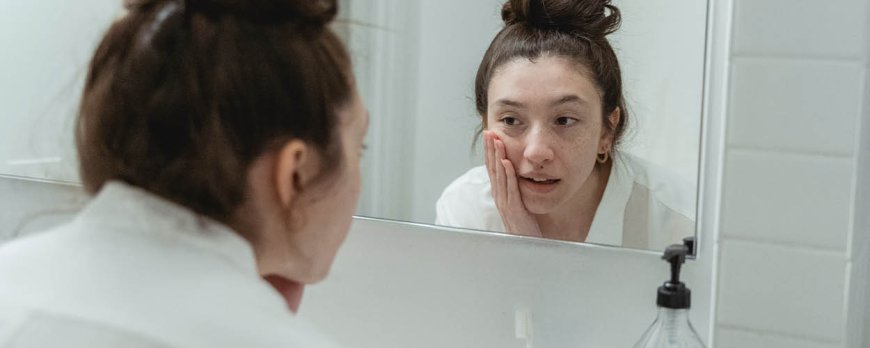
Additional Factors Influencing Appearance
Beyond genetics and lifestyle, there are several additional factors that can influence our overall appearance. These factors, although often overlooked, can play a significant role in how old we look. Let's explore some of these lesser-known elements:
1. Posture:
Believe it or not, our posture can affect how old we appear. Slouching or hunching can make us look older, as it creates the illusion of sagging skin and muscle weakness. On the other hand, maintaining good posture can help us appear more youthful and confident.
2. Hair Condition:
The quality and condition of our hair can have a noticeable impact on our perceived age. Thinning hair, graying strands, or brittle texture can give the impression of aging. Taking care of our hair by using appropriate products, maintaining a healthy diet, and avoiding excessive heat styling can help us maintain a more youthful appearance.
3. Facial Expressions:
Our facial expressions can also contribute to the perception of aging. Repeated facial movements, such as frowning or squinting, can lead to the development of wrinkles over time. Conversely, smiling and maintaining a relaxed facial expression can help us appear more vibrant and youthful.
While genetics and lifestyle choices are primary factors in determining how old we look, it's essential to recognize the influence of these additional elements. So the next time you want to maintain a youthful appearance, don't forget to pay attention to your posture, hair condition, and facial expressions.
The Role of Inflammation and DNA Repair
Inflammation and DNA repair mechanisms have a significant impact on how we age and how old we appear. Scientists have discovered that variations of the MC1R gene, responsible for inflammation and DNA repair, can contribute to a person looking older than their actual age. A study conducted on 2,600 older Dutch individuals revealed that those with specific forms of the MC1R gene appeared two years older than their chronological age, even after accounting for other factors like skin pigment and wrinkles.
The MC1R gene is thought to affect the aging process by hindering DNA repair processes and increasing inflammation. These genetic factors, combined with external influences such as environmental factors and lifestyle choices, can contribute to premature aging. While the MC1R gene has been identified as one of the key influencers of perceived age, further research is necessary to fully understand the intricate genetic pathways involved in the appearance of aging.
In light of this research, it becomes evident that managing inflammation and enhancing DNA repair mechanisms are crucial for promoting healthy aging and maintaining a youthful appearance. By adopting lifestyle habits that minimize inflammation, such as maintaining a balanced diet rich in antioxidants and engaging in regular exercise, we can potentially mitigate the effects of accelerated aging. Additionally, protecting our skin from sun damage, reducing exposure to pollution, and adopting stress management techniques can contribute to healthier DNA repair processes.
Conclusion
Understanding the factors that contribute to how old we appear is essential in navigating the aging process and finding strategies to preserve a youthful look. Scientists have made significant progress in uncovering the role of genetics in determining our perceived age. Research has shown that a specific gene called MC1R can influence how old a person looks.
A study conducted on 2,600 older Dutch individuals revealed that certain versions of the MC1R gene can make a person appear two years older than their actual age. This effect persisted even after accounting for other factors like skin pigment and wrinkles. The MC1R gene is believed to hinder the repair of damaged DNA and increase inflammation, contributing to the appearance of aging.
While the MC1R gene is just one piece of the puzzle, it highlights the intricate genetic pathways involved in the aging process. Further research is needed to better understand the role of other genes in influencing our perceived age.
To maintain a youthful appearance, it is crucial to adopt a holistic approach that incorporates effective anti-aging solutions. This can include skincare products, lifestyle choices, and cosmetic procedures. By addressing factors such as sun exposure, pollution, and stress levels, we can mitigate the effects of environmental factors on premature aging. Additionally, prioritizing a healthy lifestyle with a balanced diet, regular exercise, and stress management can positively impact how we age.
Overall, by understanding the genetic and environmental factors that contribute to the appearance of aging, we can make informed choices and adopt strategies to preserve a youthful look. While the aging process is inevitable, it is within our power to age gracefully and embrace the journey with confidence.
FAQ
Why do some people look older?
Some people appear older than their actual age due to various factors, including genetics, environmental factors, lifestyle choices, and skin aging. Understanding these factors can help explain why individuals may look older than others.
How do genetics influence the aging process?
Genetics play a significant role in how we age. Certain genes, such as MC1R, have been found to influence how old a person appears. Variations of specific genes can impact our perceived age by impeding DNA repair processes and increasing inflammation.
What are some environmental factors that contribute to premature aging?
Environmental factors, such as sun exposure, pollution, and lifestyle choices, can accelerate the aging process. These factors can lead to the breakdown of collagen and elastin, resulting in wrinkles, discoloration, and other signs of aging.
How does lifestyle affect the aging process?
Lifestyle choices, including diet, exercise, and stress levels, can impact how we age and how old we appear. A healthy lifestyle can help promote healthy aging and delay the onset of visible signs of aging.
What are the effects of aging on the skin?
Aging can lead to changes in the skin, including decreased elasticity, the formation of wrinkles, and uneven pigmentation. These changes can contribute to an older appearance. Proper skincare and protection from harmful UV rays can help maintain healthy and youthful-looking skin.
What are some anti-aging solutions available?
There are various anti-aging solutions available, including skincare products, cosmetic procedures, and lifestyle adjustments. It's important to adopt a holistic approach that combines healthy habits, effective skincare routines, and, if desired, professional treatments to address the signs of aging.
What factors contribute to the perception of aging?
In addition to genetics, lifestyle, and environmental factors, other elements such as posture, hair condition, and facial expressions can impact how old we appear. These factors, when combined, contribute to the overall perception of aging.
What is the role of inflammation and DNA repair in the aging process?
Research has shown that inflammation and DNA repair processes play a crucial role in the aging process. Inflammation can lead to the breakdown of collagen and other essential proteins, while impaired DNA repair can result in accumulated damage. Minimizing inflammation and enhancing DNA repair may help slow down the visible signs of aging.
What is the importance of adopting healthy lifestyle choices and utilizing anti-aging solutions?
Maintaining a healthy lifestyle, including proper nutrition, regular exercise, and stress management, can significantly impact how we age and how old we appear. Alongside these healthy choices, utilizing effective anti-aging solutions can help minimize the visible signs of aging and promote a more youthful appearance.






























































































































